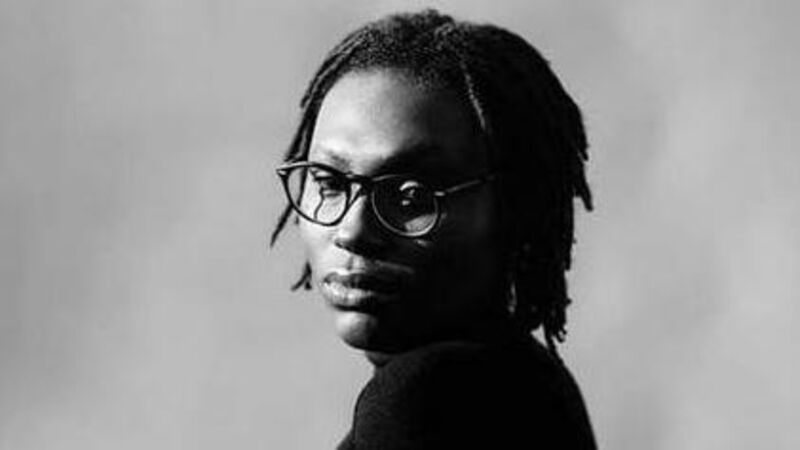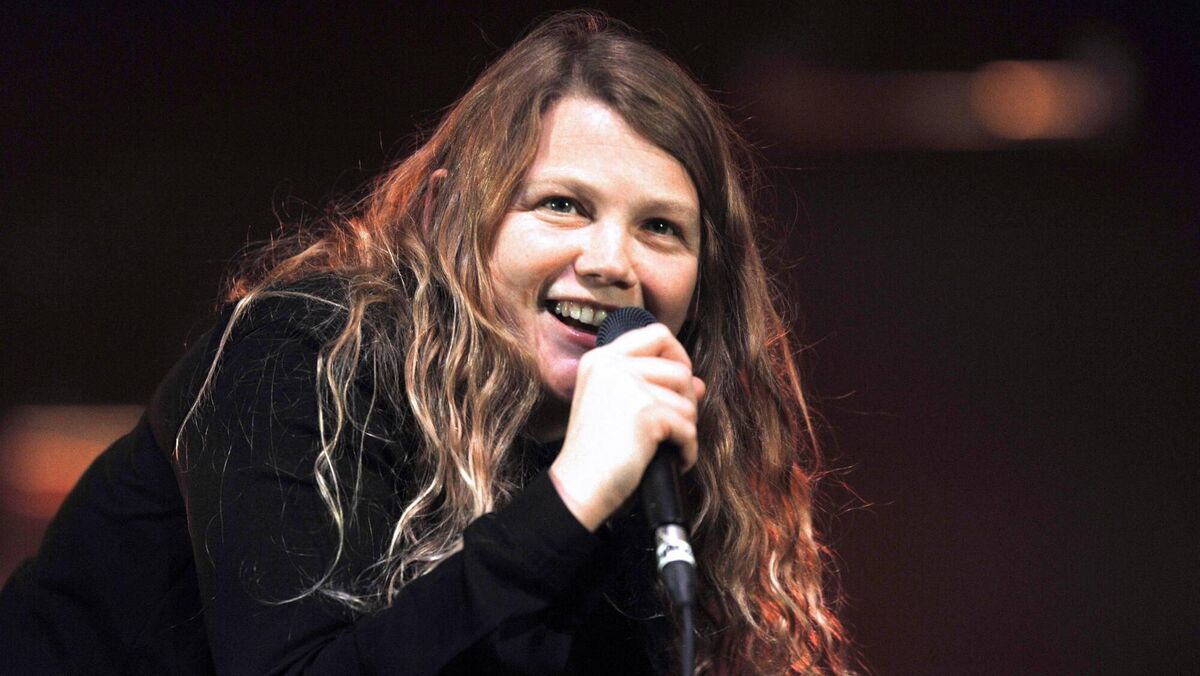Culture That Made Me: Felispeaks on Yoruba culture and tales of the Irish famine

Nigerian-Irish poet Felispeaks is one of the participants in Culture Night.
The Nigerian-Irish poet Felicia Olusanya, 25, is known as Felispeaks. She was born in Nigeria and moved to Ireland – via France – when she was around eight years of age. After spending several months at Balseskin direct provision centre in Co Dublin, she settled in Longford Town until she went to university.
She is a regular performer on Ireland’s spoken word circuit and her poem For Our Mothers is on the Leaving Certificate English curriculum. Her poetic film Amongst Ourselves, which is based on workshops with three pairs of black African women and their Irish daughters, will be screened as part of Culture Night, at Dublin City Gallery The Hugh Lane, 5pm-7.30pm, Friday, September 17. See www.culturenight.ie
I fell in love with books in primary school – I loved using my imagination that way. As I would walk home from school, I had to pass the county library. I’d pop into the library, study there, pick up books, wait for my mom to be done at work. Always my life revolved around books beyond education. It was my escape route. Through reading at home, in the dark, under the covers when I should have been asleep, I would be inspired to also write. I learned how to cultivate my imagination. I began writing poetry, but I didn’t have a word for poetry. I called it “my thoughts copy”.
When I was around 10 or 11, I loved Marita Conlon-McKenna’s Children of the Famine trilogy. It’s about three children escaping the Irish famine. The story is told from the children’s perspective. They’ve lost their family. The books follow their youth as they move to England. It's so sad, but it's freaking amazing. It’s about bravery, about hope. The story comes alive so vividly, but it’s not just the storytelling. I remember the enthusiasm of the teacher who read the stories to us. It was so exciting to see that they were on a suffering journey as well as an adventure. There was this thrill that connected to me about the search for independence and the necessity of survival.
Truthfully, I don't remember my journey [from Nigeria to Ireland] having any sort of similarities because the children’s experience in the famine trilogy was particularly turbulent. It’s a question of memory versus reality. In terms of my memory, I don't remember my journey being specifically turbulent because I was a child with my mother that loved me. I was living with my mum. My family wasn't dead like the kids in the story.
Who Run With the Wolves by Clarissa Pinkola Estés is very interesting. She’s a Jungian psychologist. She dissects different pitfalls that women often fall into using myths and stories of the “wild woman” archetype. The wild woman is a metaphor for your most natural self. Women often neglect their most natural self to obey stereotypical roles in which they’re supposed to engage, either as a woman, daughter, mother or sister. It’s important not to lose your natural inclinations. One story, for example, she fleshes out is the ugly duckling. She explores the impact of being rejected by your mother and how that affects your ways of behaving, and how you deal with intimacy and relationships.

I got to open for Kae Tempest [English spoken word artist, formerly known as Kate, and uses the pronouns they/them] at Vicar St before the pandemic. It was incredible to see them bring to life the entire theatre with just spoken word and ambient music, that subtle bridge they play with. I loved how they played with the live music element so casually – the ease and flow and transitions. It was nearly a romantic relationship with the audience: we are safe as we explore each thought process. Obviously there's a lot of people that knew the words, but the delivery was so “Kae slow” that you couldn't but be drawn in. I loved that strong hold on the audience, from start to finish. They were glued to the performance.
Saul Williams has this way of making it not just about spoken word. He makes it about the entire message in the performance. I remember when I opened for him, he had projections, visuals, he was on top of tables! There was moments for just the song or the sound to play. There was moments for you to hear him without the mic, with the mic. When he was changing track, it felt like you were entering a different dimension of the same message. His performance went beyond the stage. It felt like he infiltrated the audience, like the audience became part of the performance. It was mesmerising.
The whole body is important for communication. Some people are naturally more expressive than others. Others are taught how to express themselves for performance. I happen to be quite expressive and have a great space that I can channel that expressiveness into. One of the things I've learned is that you can intentionally use all those mannerisms and each of them are equally important. It's part of the language of acting.
Nigerians are quite expressive. I’m Yoruba. Within our language, there's a lot of proverbs and adages for ways of living. We can be very intentional and meticulous with words. A lot of Yoruba sentences are metaphorical in the ways of saying them. So obviously there's a word for a window. There's a word for sit down, but the sentence for “I'll see you later” translated literally is more metaphorical than what its translation is: “We’ll still be seeing another day.”
I watch a lot of stand-up poetry. There is this duo. They’re not even siblings, but they have the same last name. It's Sarah Kay and Phil Kaye. What I really enjoy about them is their back stories because they bring that on stage. They both have siblings. One of their siblings have the same name. Their backgrounds are quite similar. They end up in the same college. They both do poetry. They look like they could be romantically engaged, but they’re not. They bring that chemistry on stage. They do poems together. I like their performance package. It's great.
If we’re thinking about power tools in social-media society, Twitter is heavy duty. Even the president of the United States had to be banned from it. I enjoy conversations without necessarily following people. I enjoy analysing social discussions. Obviously there is the problem that you can be in your own bubble. But beyond the jokes and the threads that are funny, there's a lot of serious things that you can find on it, which I can filter into my poetry.


